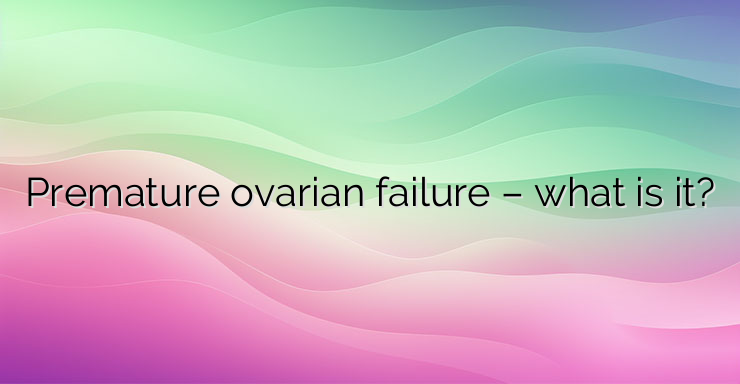Alright, let’s dive into the world of ovaries! These little organs are like multitasking wizards, doing both endocrine and reproductive jobs. They’re responsible for hormone production and making sure we can make babies. But as we age, their function starts to decline, which kinda makes sense considering their vital role in the circle of life.
Usually, women hit menopause around 51, marking the end of their reproductive years. But sometimes, this happens earlier, before the age of 40, and that’s what we call premature ovarian failure (POF). It’s like your ovaries hit the pause button earlier than expected. With POF, you might stop getting your period, have lower estrogen levels, and higher levels of follicle-stimulating hormone (FSH). But unlike menopause, there’s still a chance for spontaneous ovarian activity and pregnancy.
POF isn’t just about fertility though. It can lead to other health issues too. Reduced estrogen levels can up your risk of osteoporosis and heart problems. So, who’s at risk? Well, POF affects about 0.1% of women under 30 and 1% under 40. It’s also found in a chunk of women with primary or secondary amenorrhea.
Now, what causes this early ovarian retirement? It can be triggered by a mix of things – from genetic abnormalities like Turner syndrome to autoimmune conditions or even infections like mumps. Diagnosis isn’t too complicated. If your FSH levels are consistently high (like over 40 UI/l), that’s a sign.
Once diagnosed, the focus shifts to managing POF. That means tackling infertility, hormone replacement therapy (HRT), and educating patients. HRT steps in to replace those missing hormones, protecting bone density and easing symptoms of low estrogen. And guess what? Some lucky ladies with POF can still get pregnant spontaneously, but for others, techniques like donor eggs or embryos offer hope.
Education plays a big role too. Understanding the condition and its implications can help women cope better. It’s like getting a crash course in ovarian health! So, whether it’s finding the right treatment or understanding what’s going on in your body, knowledge is key.


Leave a Reply